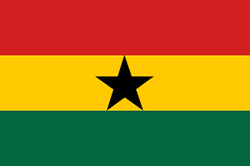 by Dorcas Dwommoh-Mensah and Akua Adu Boahene
by Dorcas Dwommoh-Mensah and Akua Adu Boahene
On Wednesday 13th April 2016, the two participants of "Leonesse d’Africa", Dorcas Dwommoh-Mensah and Akua Adu Boahene, led by Avv. Cristina Fussi and Avv. Simona Viola from ASLAWomen, made a trip to Rome for a meeting with the Officials of Autorità Nazionale Anticorruzione (ANAC).
The purpose of the meeting was to seek enlightenment from ANAC on how to embark on a successful anti-corruption initiative, using the establishment of ANAC as a model.
We were warmly received and also graced with the presence of Raffaele Cantone, President of ANAC. We were informed that he was a former Magistrate who was extremely instrumental in placing a lot of the members of the mafia crime families behind bars. Thus, the choice of him as the President of the institution showed Italy’s determination to reduce corruption to the barest minimum.
ANAC’S PRESENTATION
Corruption, as is generally known, affects efficiency and effectiveness of public institutions and redirects resources meant for public good to the egoistic benefit of few individuals. It therefore detracts public resources from public use and benefit.
We learnt at the meeting that, the Italian Anti-corruption system, Law 190/2012 set up a comprehensive system to prevent corruption and established in 2009, an anti-corruption organ/ Authority (ANAC); an independent regulatory Authority which functions as the central actor of the system. ANAC thrives on the institution of a Preventive system, Transparency and Rules of Conduct as its major pillars. A.N.A.C. also analyses the causes and factors of corruption to point out actions to prevent corruption.
We were further educated that A.N.A.C is responsible for the supervision of Public procurements by regulating, supervising and monitoring bodies that grant the required certificates for public tenders in the execution of public contracts; all with the of aim of preventing corruption.
The institution is also vested with the power to inspect offices and confiscate documents, as well as intervene directly in public work contracts, under investigation for alleged corruption. They also act as an advisory body to “State Bodies” and all public administrations on ways of ensuring compliance of public employees with the code of conduct, contracts and the law. Their decisions however, are of a persuasive effect and are not binding on the courts of law.
In response to questions we posed, the officials of the Authority educated us on how they strive to ensure the following;
- Independent Anti-corruption Authority - through strictly monitored selection and remuneration of employees as well as supervision of their work; the President cannot be removed during his mandate
- Anti-corruption plan for all public administrators - each public sector is expected to adopt and implement the plan.
- Training and Protection of employees or whistleblowers
- Participation of citizens in the culture of legality and transparency
Our visit to ANAC was very productive, since Ghana does not have in existence such ananti-corruption system based on prevention but merely one which seeks to penalize such acts upon a complaint of its commission.
The establishment of such an independent body in Ghana whichanalyzes the causes and factors of corruption, as well as point out actions to prevent, supervise and take measures to prevent corruption, would indeed go a long way to curb this menace. Its cooperation with other corresponding international bodies would also promote its growth.
It is without a doubt that indeed corruption is a canker affecting both developed and developing countries. Its impact however on developing countries, like Ghana, is severe. Having been educated that there are proven ways to promote, spreadand achievea culture of legality and integrity to combat corruption, thereis therefore hope, although the path may not be easy or smooth, in achieving this in Ghana as well.






